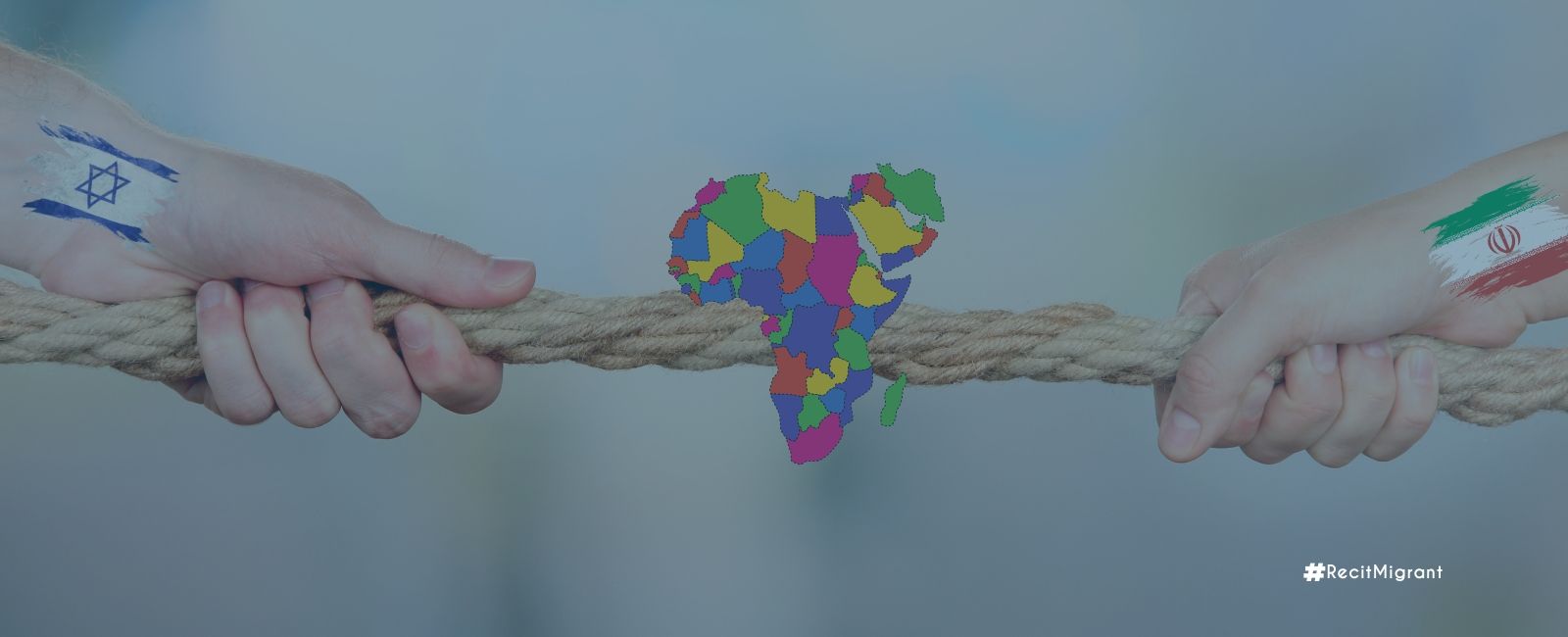

In the early hours of 13 June 2025, Israel launched a deadly attack on Iran. Iran responded immediately, triggering an escalation of violence in the Middle East. The entire world followed the crisis with concern. Although a de-escalation has been observed since 24 June, the conflict has had repercussions for African nationals living in both countries, across the broader Middle Eastern region and on the African continent.
Although the Israel-Iran conflict is unfolding far from Africa, its consequences are being felt across the continent, particularly among African nationals residing in the affected countries. Several African States and organisations have responded with a mix of caution, concern and diplomatic appeals. According to Africa Nova, the African Union has called for restraint and dialogue, reaffirming its commitment to regional stability. The source also notes that countries such as South Africa have condemned the escalation of military tensions, urging the protection of civilians and respect for international law. Africa Nova further reports that hundreds of thousands of Africans live and work in the Gulf, Israel, and Iran – many of whom have been impacted by border closures, flight suspensions and deteriorating security conditions.
According to the Burkinabè news outlet WakatSéra, oil-importing countries in sub-Saharan Africa could face a spike in fuel prices, potentially driving up inflation and putting additional pressure on their foreign exchange reserves. Sputnik also warns that the intensified war efforts by major powers are likely to push global prices even higher. As African countries rely heavily on imports of manufactured goods, inflation could accelerate even in nations not directly involved in the conflict.
Ghana was among the first African countries to respond. According to africanews, its government closed the embassy in Tehran and began evacuating Ghanaians from Iran by land. Ghana has also reduced its diplomatic presence in Israel and is seeking special authorisation to evacuate more than 900 citizens, including 65 students. Nigeria, Uganda, Sudan and other countries have taken similar measures.
According to Africanews, African governments are relying on land routes and assistance from other countries to evacuate their citizens from conflict zones, as air travel has been severely disrupted. The outlet notes that this is not the first time these governments have been forced to act in response to foreign conflicts. During the Russia-Ukraine war two years ago, for instance, thousands of African students and workers were left stranded – often without assistance – facing racism at borders and struggling to escape. That crisis exposed serious shortcomings in African emergency response systems, prompting widespread calls for improved coordination, strategic planning and diplomatic engagement.
Africanova also warns that rising global prices are worsening the food crisis in many African countries that rely on cereal and fertiliser imports from the Middle East. Several NGOs have raised concerns about growing food insecurity, particularly in the Horn of Africa and the Sahel.


